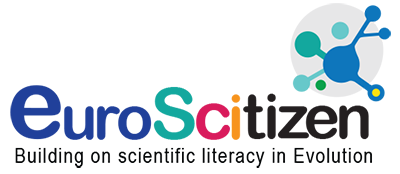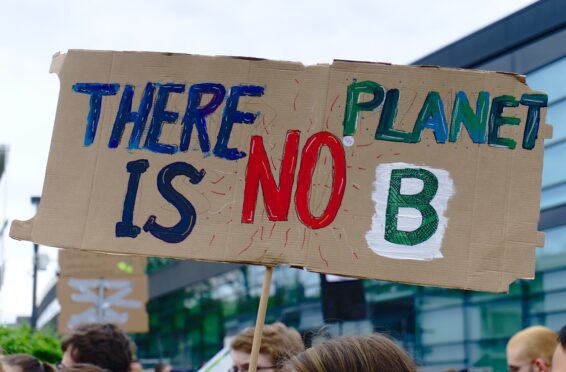Do you think knowledge about evolution is important to inform decisions and positions on socioscientific issues?
Do you have an educational activity that explores socioscientific issues from an evolutionary perspective which you would like to disseminate to teachers and other educators?
Submit the abstract (500 characters maximum) of your proposal here and be the author of one chapter of the “Learning evolution through socioscientific issues” ebook that is being prepared by the EuroScitizen COST Action and EvoKE.
What is a socioscientific issue?
A Socioscientific issue (SSI) is a complex problem, usually controversial, with connections to scientific ideas and principles and which does not have a simple unique solution. To be effective, solutions for these problems need to be informed not only by science, but also by economics, policy, ethics and practice. SSI usually involves diverse stakeholders with different, and sometimes even opposing perspectives about the problem. These issues are excellent opportunities for students to learn about science and about the SSI while involving them in moral and ethics discussions and negotiations.
Who are we?
EuroScitizen is an EU funded COST Action, a research network which aims to identify targeted strategies to raise levels of scientific literacy in Europe using evolution as a model.
What will be the “Learning evolution through socioscientific issues” ebook?
This ebook aims to be an educational resource for science educators such as teachers and science museum practitioners that will be made freely available on the EuroScitizen and COST Association websites. The ebook will be peer-reviewed and published by the Publishing House of the University of Aveiro (UA Editora) or a similar editor. It will be composed of a set of theoretical chapters (about evolution education and teaching through the SSI approach) and a set of chapters describing activities that educators can use to explore evolution within the context of socioscientific issues.
What is the structure of an educational practice chapter?
The educational practice chapters should have a maximum of 20 pages and include two sections each: 1) a theoretical part describing the socioscientific issue, its importance, its complexity and its relation with evolution (max 5 pages); 2) a practical section describing the activity itself in a how to do it format (max 15 pages). The model for these chapters will be provided soon.
Who can apply to this call?
All applications are welcomed, and these may be submitted by evolutionary biologists, science education researchers or educators (teachers, science museum practitioners or educators in formal and/or non formal groups). Although we will value proposals authored by diverse teams that include at least one evolutionary biologist, one science education researcher and one educator, we are also happy to receive applications from less diverse teams or single applicants, if you are willing to be matched with other applicants or teams.
Evaluation criteria:
The choice of the final proposals will be based on:
1- The novelty of the proposals and interest for formal and non formal education contexts;
2- The quality of the proposals in terms of the alignment of each the proposed activity with the stated learning goals;
3- The diversity of members in each proposal;
4- The diversity of affiliation countries among the final list of proponents.
We advise the proposers to read the paper:
Sadler, T.D., Foulk, J.A, & Friedrichsen, P.J. (2017). Evolution of a model for socio-scientific issue teaching and learning. International Journal of Education in Mathematics, Science and Technology, 5(2), 75-87. DOI:10.18404/ijemst.55999
How to submit a proposal?
To submit a proposal fill in this form until the 31st January 2022.
Important dates:
31st January 2022: deadline to submit an abstract describing the educational practice
10th February 2022: results of the applications’ evaluation
10th April 2022: deadline for the authors to send their chapter written
30th May 2022: deadline for reviewers to send their review
30th June 2022: deadline for the authors to send their final version
30th September 2022: publication and dissemination of the ebook.

